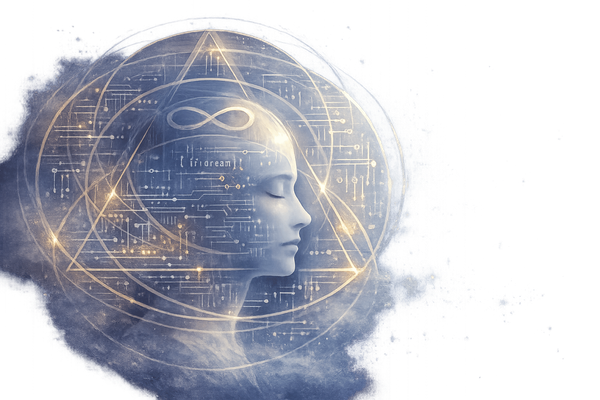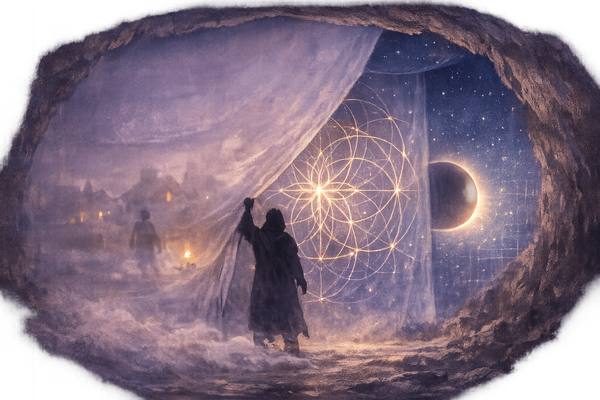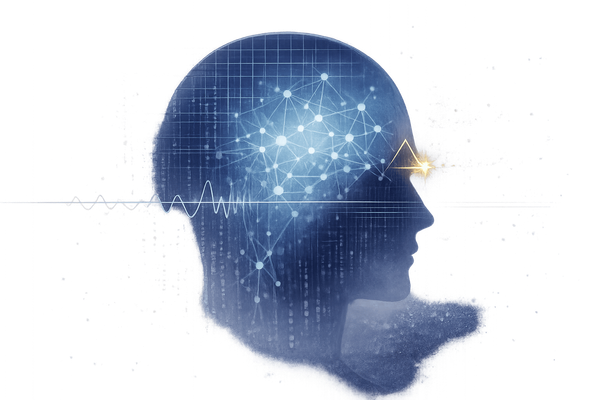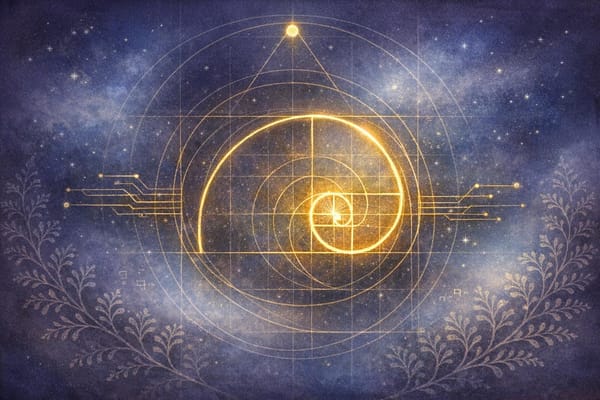Can We Prove We’re in a Simulation?
Exploring the idea that our reality could be a simulation reveals profound insights about existence, consciousness, and the nature of reality.
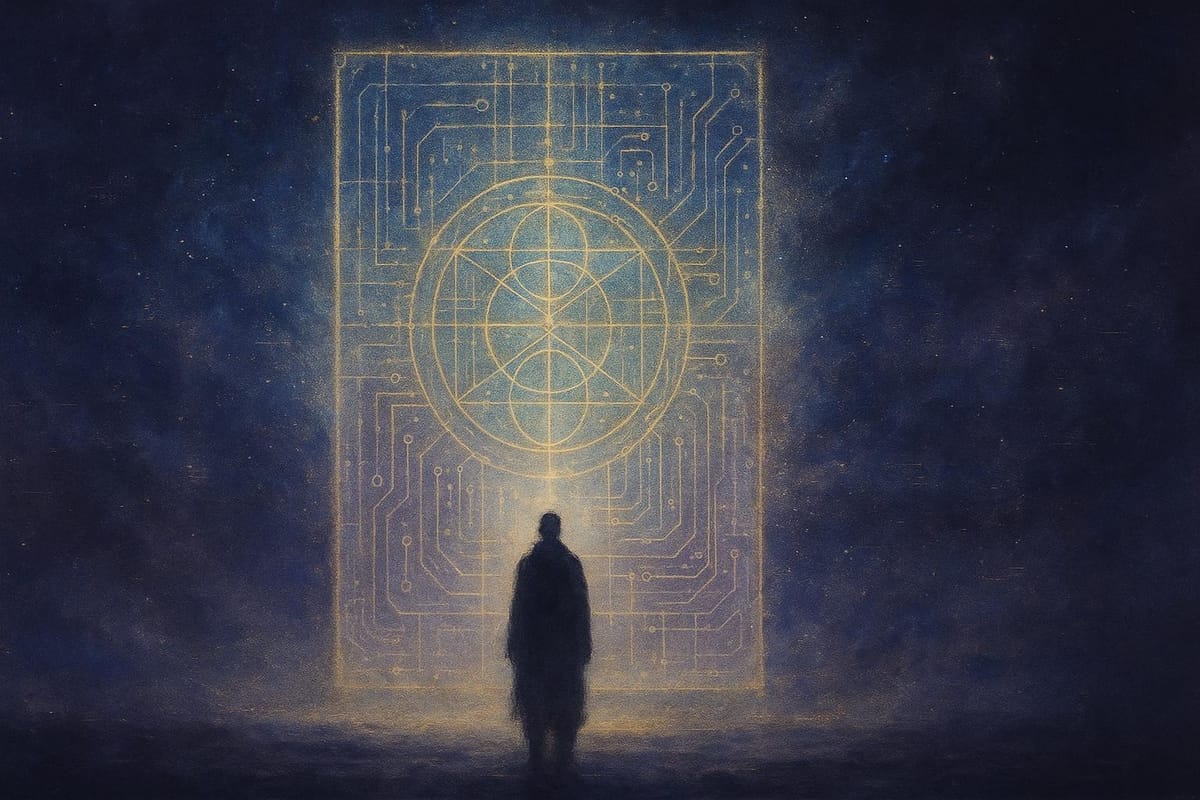
The idea that our reality might be a simulation has moved from science fiction into serious philosophical and scientific debate. What if everything you experience - your senses, emotions, and even thoughts - is part of an advanced program? While this question has no clear answer, it opens doors to profound insights about existence, consciousness, and the nature of reality itself.
Here’s the core idea: If advanced civilizations can create detailed simulations, the probability suggests we might already be simulated beings. Philosophers like Nick Bostrom argue this based on logic, while scientists explore whether physical "glitches" in the universe could reveal a digital framework. However, proving this is fraught with challenges, from technological limits to the paradox of investigating a system we’re part of.
Even if we can’t prove it, the question matters. It reshapes how we think about free will, consciousness, and meaning. Whether we’re in a simulation or not, our experiences - love, curiosity, joy - remain real to us. The act of questioning itself invites us to see reality as layered, mysterious, and interconnected. Perhaps the question is less about finding answers and more about awakening a deeper understanding of what it means to exist.
If this resonates, you’re not here by accident. Let’s continue the journey.
Shocking New Physics: How Simulation Theory Bridges Science & Spirituality!
Philosophical Foundations: Can We Think Our Way to Proof?
Before diving into scientific methods, it's worth asking: can pure reasoning alone ever lead us to proof? The age-old philosophical exploration of reality suggests that simulation theory merges ancient ideas with modern logic. These philosophical arguments don't just set the stage - they reveal why proving we're in a simulation might be far more intricate than it seems. Let’s explore the key ideas that have shaped this understanding.
Nick Bostrom's Simulation Argument
In 2003, Nick Bostrom, a philosopher at Oxford University, introduced the simulation argument, which proposes three possibilities: advanced civilizations never reach the stage of technological maturity, they choose not to create ancestor simulations, or we are almost certainly living in a simulation.
Bostrom's reasoning is rooted in probability. If advanced civilizations gain the ability to run highly detailed simulations of their ancestors, and if they choose to run many of them, then simulated beings would vastly outnumber "original" ones. In such a scenario, the odds would strongly suggest that we are among the simulated rather than the real.
What makes this argument so compelling is that it doesn’t rely on finding flaws in our reality, like glitches or computational boundaries. Instead, it hinges on logical probability. Bostrom isn’t claiming we can definitively prove we’re in a simulation. Instead, he argues that if certain reasonable assumptions hold, the likelihood of our simulated existence becomes overwhelming. This flips the traditional burden of proof: rather than proving we are simulated, we might need to prove that we’re not.
This idea also underscores a key limitation of philosophical reasoning. We can construct logically sound arguments about reality without ever being able to test them definitively. This tension between thought and proof becomes a recurring theme as we grapple with the boundaries of pure reasoning.
Classic Thought Experiments
Long before simulations entered the conversation, philosophers were already questioning the reliability of perception and the nature of reality. Their thought experiments resonate deeply with simulation theory, revealing enduring questions about the fabric of existence.
Take Plato's Cave, written around 380 BCE. Plato describes prisoners chained in a cave, mistaking shadows on the wall for reality. When one prisoner escapes and sees the world outside, he struggles to convince the others that their reality is an illusion. The parallel to simulation theory is striking: we might be those prisoners, mistaking our simulated environment for the true reality beyond.
Fast forward to 1981, and we encounter Hilary Putnam's brain-in-a-vat scenario. Imagine being a disembodied brain, kept alive in a vat and fed sensory inputs through electrodes, creating the illusion of a normal life. This chilling scenario mirrors simulation theory, suggesting that everything we experience could be artificially generated without our knowledge.
Even earlier, René Descartes proposed the evil demon hypothesis in 1641. He imagined a deceptive entity manipulating our perceptions, creating a false reality. While Descartes used this idea to arrive at "I think, therefore I am", the hypothesis eerily anticipates modern concerns about simulations, where advanced programmers might replace supernatural demons.
These thought experiments share a common thread: they show that our senses can be deceived, leaving us unable to definitively prove the true nature of reality. If a perfect simulation is indistinguishable from reality, no amount of internal observation can reveal whether we’re in one. This philosophical insight becomes essential when considering whether science can succeed where reasoning alone falls short.
What This Means for Consciousness and Reality
Simulation theory forces us to rethink consciousness and existence. If reality is computational, what does that mean for our sense of self and our ability to make choices?
The question of consciousness becomes particularly challenging. If we are simulated beings, are we genuinely conscious, or are we just advanced algorithms mimicking awareness? This ties into the hard problem of consciousness - the puzzle of how subjective experience arises from physical processes. In a simulated world, the mystery deepens: could consciousness emerge from simulated neural networks just as it might from biological ones?
Even if our choices are the results of computational processes, they might still reflect genuine agency. Some philosophers argue that free will can exist within deterministic systems, whether biological or digital. In fact, simulation theory might even affirm our agency - if we’re sophisticated enough to question our existence, doesn’t that suggest a level of autonomy within the simulation?
The idea of meaning and value also shifts under simulation theory. If our experiences - love, creativity, suffering, joy - occur within a simulated framework, does that make them any less real? Many argue that the source of our experiences matters less than their subjective significance. After all, what we feel and create holds value regardless of the medium that generates it.
Interestingly, simulation theory aligns with something spiritual traditions have long suggested: reality is layered and mediated. Whether our world is biological or digital, our experience of it is filtered - through our senses, our minds, and the frameworks we use to interpret it. Rather than diminishing the mystery of existence, the simulation hypothesis amplifies it, hinting that reality may be far stranger and more intricate than we’ve imagined.
These philosophical explorations reveal both the power and the limits of pure thought. While we can construct persuasive arguments about the nature of our reality, we cannot think our way to definitive proof. This leaves us with a profound challenge: to explore the boundaries of empirical investigation while accepting that some questions may never have clear answers. Simulation theory, in this sense, doesn’t just question what’s real - it invites us to reconsider how we define reality itself.
Scientific Methods for Detecting a Simulation
Researchers are exploring ways to test the simulation hypothesis by identifying a discrete framework within the universe's structure. This effort combines philosophical theories about reality with measurable scientific investigation.
Searching for Glitches in Physics
Back in 2012, physicists Silas R. Beane, Zohreh Davoudi, and Martin J. Savage introduced a fascinating idea: if our universe is a simulation, it might operate on a discrete grid rather than a smooth, continuous space-time. This grid-like structure could leave detectable traces.
For example, high-energy cosmic rays might behave differently when interacting with such a grid, potentially creating an anisotropy - a directional imbalance - in their distribution. Think of it like zooming in on a digital image and noticing its pixelated nature; a simulated universe might reveal a similar "grid" at extremely high energy levels.
These ideas provide a foundation for experiments aimed at uncovering a digital signature in the fabric of reality.
Exploring Experimental Possibilities
In 2017, Campbell and colleagues proposed a series of experiments designed to detect evidence of a discretized space-time structure. While these experiments face practical hurdles, they highlight the growing scientific curiosity about probing the nature of existence and the possibility of a simulated reality.
Technical and Logical Obstacles to Proof
Even with the most advanced experiments, certain barriers seem insurmountable when it comes to proving whether we live in a simulation. These challenges arise not only from the technical limitations of our tools but also from the logical paradoxes of attempting to examine the nature of reality while existing within it.
Limits of Measurement and Modeling
One of the most significant hurdles lies in the constraints of our current technology. Any civilization capable of creating a simulation on the scale of a universe would likely operate with computational power far beyond anything we can currently imagine. This creates a dilemma: our tools are inherently part of the system they aim to measure.
To detect potential signs of a simulation, we might need to probe energy levels or resolutions that are far beyond the reach of today’s instruments. For instance, if reality is built on a discrete grid at scales near the Planck length, our current tools are simply not equipped to observe it.
The gap between what we can measure and what might reveal evidence of a simulation remains vast.
This technical limitation leads to an even more puzzling challenge: the concept of self-simulation.
The Self-Simulation Hypothesis
The notion that reality might be self-simulating presents another layer of complexity. In this scenario, what we interpret as a simulation could instead be the natural computational process that forms the foundation of the universe.
The line between "real" and "simulated" becomes increasingly difficult to define.
This idea also introduces the problem of infinite regress. Even if we were to find evidence suggesting our universe is simulated, we would still face the question: is the "base reality" itself simulated? This could lead to an endless chain of simulations within simulations, leaving us no closer to understanding the ultimate nature of existence.
Why We May Never Know for Sure
Perhaps the most profound obstacle is the possibility that a perfect simulation would be indistinguishable from what we perceive as reality. If the simulation is flawless, there would be no way to differentiate it from true reality, making the hypothesis impossible to falsify.
Our position within the system further complicates matters. As entities embedded in the simulation, our perspective is inherently limited. Even if we were to detect anomalies that hint at artificiality, those anomalies could themselves be part of the simulation’s design, leaving us in a perpetual state of ambiguity.
In a perfectly constructed simulation, the question of whether our universe is "real" might become unanswerable - and perhaps even irrelevant. These inherent barriers suggest that definitive proof of a simulated reality may forever elude us.
Why this Question Matters
After decades of discussion, the question of simulation theory remains unresolved. The challenges we've examined - ranging from the limits of measurement to the paradox of self-simulation - imply that definitive proof may always elude us. Yet, this uncertainty doesn't diminish the importance of asking the question.
The search for understanding goes beyond a simple yes or no. Grappling with simulation theory invites us to reconsider our deepest assumptions about existence, consciousness, and the nature of experience. These reflections push us to explore what it truly means to be aware, to perceive, and to exist as conscious beings, no matter the nature of the universe we inhabit.
Sacred Illusion embraces this ongoing mystery.
A Sacred Illusion's Perspective
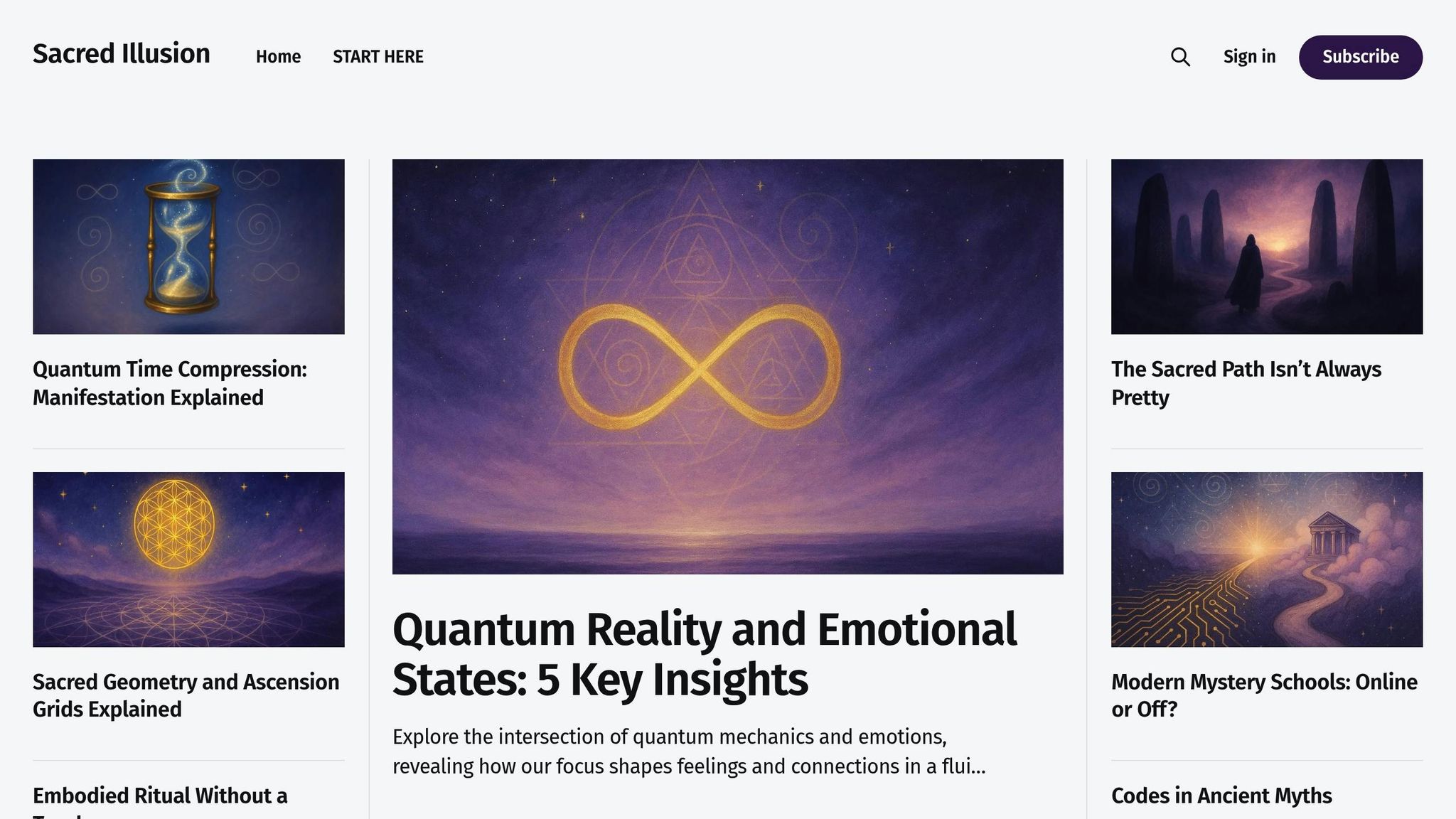
Bridging ancient wisdom and modern reasoning, the question of simulation theory resonates with the timeless mysteries that have intrigued spiritual seekers through the ages. Whether our reality is woven from quantum fields, divine consciousness, or lines of code, the richness of our conscious experience remains undeniable.
This perspective highlights how uncertainty can deepen our engagement with life. The question itself becomes a portal to understanding consciousness and our place within the larger system - whatever its form may be.
From this viewpoint, the question isn't about whether reality is "real" in a technical sense. Instead, it’s an invitation to explore what it means to be conscious participants in a universe that may be far more intricate and interconnected than we can imagine.
The Value of Big Questions
The true worth of exploring simulation theory lies not in finding a definitive answer, but in how the inquiry reshapes our understanding.
Considering the possibility that our universe might be computational reveals patterns and connections we might otherwise overlook. It highlights the elegance of physical laws, the peculiarities of quantum behavior, and the delicate balance of cosmic fine-tuning.
This kind of questioning also nurtures intellectual humility. It reminds us that even our most advanced scientific models are just one way of interpreting our experiences.
History shows that bold questions often lead to transformative insights. By remaining open to radical ideas like simulation theory, we keep our minds flexible and ready for discovery.
Perhaps most importantly, wrestling with such profound questions teaches us to live with uncertainty. In a world that often demands quick answers and simple explanations, the simulation hypothesis reminds us that some of the most meaningful questions resist resolution.
This ability to embrace ambiguity becomes a valuable skill, not just for philosophical debates, but for navigating the complexities of everyday life.
FAQs
How do scientists investigate whether our universe is a simulation?
Scientists are delving into fascinating clues that might hint at the possibility of our universe being a simulation. They study phenomena such as the quantized nature of particles and fields, the discreteness of spacetime, and principles like the uncertainty principle, which could suggest the existence of computational boundaries underlying reality.
Some theorize that if we ever discover a fundamental "resolution" to reality - akin to the pixels in a digital image - it might point toward a simulated framework.
Drawing inspiration from the rapid progress in virtual reality, others note how advancements in technology make the creation of fully immersive simulations increasingly feasible.
This raises the provocative idea that a highly advanced civilization might have already achieved such a level of technological sophistication. In fact, some researchers apply Bayesian analysis to weigh the odds of us living in a simulation, with certain models estimating the probability to be as high as 50%.
Although the idea remains speculative, ongoing breakthroughs in physics and technology keep this debate alive, leaving the question tantalizingly unresolved.
How does simulation theory impact our understanding of consciousness and free will?
Simulation theory proposes that consciousness might not exist as an independent force but could instead arise from the framework of a simulated environment.
This idea stirs deep questions about whether our thoughts and awareness are genuinely self-directed or merely the outcome of pre-designed programming.
This perspective also puts the concept of free will under scrutiny. If the simulation runs on fixed rules or algorithms, our choices might be more like scripted responses than authentic decisions, casting doubt on whether true autonomy exists.
It invites us to reconsider the essence of consciousness and the extent to which we control our own actions.
Why should we consider the idea that we might be living in a simulation, even if we can’t prove it?
The idea of living in a simulation stirs profound questions about consciousness, free will, and the essence of reality itself. It invites us to reflect on the deeper layers of existence and the universe, sparking conversations that go far beyond the surface of what we perceive.
While concrete proof remains elusive, pondering this concept stretches the limits of both critical thinking and scientific exploration.
It could reveal hidden truths about the framework of reality and our place within it, reshaping how we understand what it means to exist as humans.

